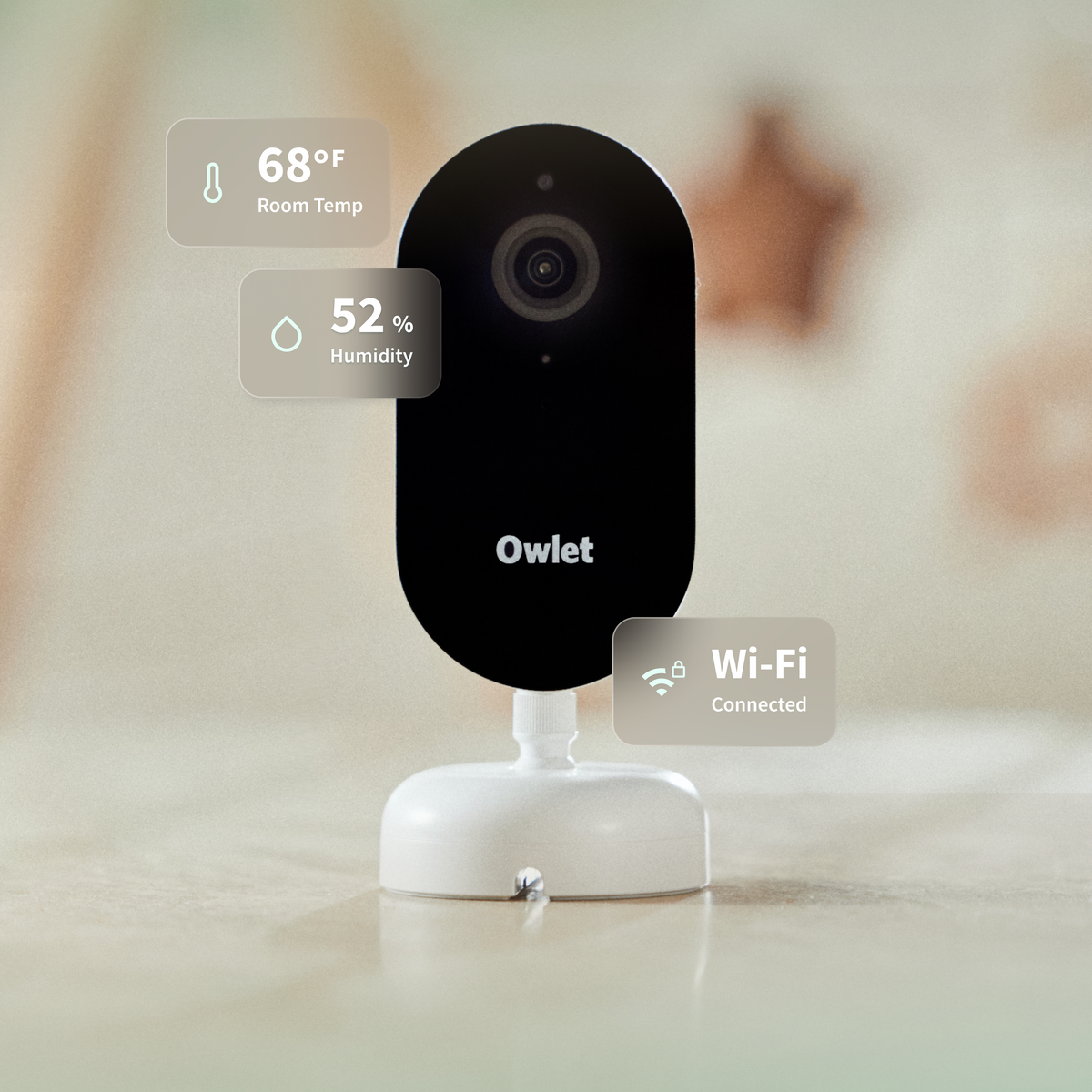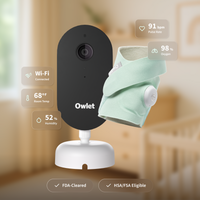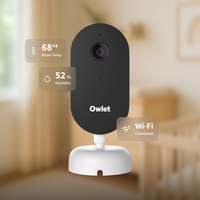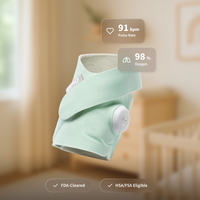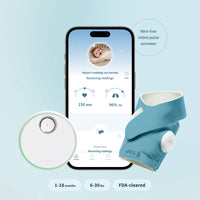How to Maximize Sleep with a New Baby

Lindsey Hennigar is the founder of The Sleep Ranch (@thesleepranch) and mom of 3 girls. In 2017, she became a Certified Pediatric Sleep Coach and has helped thousands of families (worldwide!) teach their young children how to fall asleep and stay asleep. The information presented here should not replace professional advice. Always consult your physician to learn more about your baby’s specific needs.
When becoming a parent, the stories we hear the most are about the sleepless nights. New parents get asked, “How’s the baby sleeping?” and “Aren’t you so tired?” Just know, being a parent and sleeplessness do not have to go hand in hand. Sleep is not a luxury; it’s a necessity.
Sleep Awareness Week is a reminder, especially for parents, of the importance of sleep for their overall well-being and health, as well as their baby's. Keep reading for a few ways to maximize the amount of sleep you get, even if you’re a parent to a new baby.
4 Ways to Maximize Sleep With a New Baby
1. Create a soothing sleep space
There are simple steps you can take to ensure that your baby has the best chance of falling asleep and staying asleep. A large part is setting up the nursery or sleeping space for success!
White noise is a significant help in getting your baby the most restful sleep. It can drown out external noises, such as pets, older siblings, and traffic. It also mimics the sounds that your baby heard in the womb, making it extra calming and relaxing for them. Many adults find benefits from sleeping with white noise as well, so try it out for yourself!
In addition to noise, babies are also affected by light. Bright light shining into the nursery can lead to less-than-ideal naps and early morning wake-ups. Using blackout shades will allow you (and your baby) to have longer stretches of uninterrupted sleep.
Another important factor is temperature. The recommended temperature for a baby's sleeping space is around 68-72 degrees Fahrenheit. Pairing this with the correct TOG (Thermal Overall Grade) of sleepwear will ensure your baby doesn't get too hot or too cold during the night, limiting unnecessary wake-ups.
2. Follow a routine
Babies thrive on structure and routine, which also allows you time to plan your day and get the "me time" you need. Creating a routine, even in the first few months, can be incredibly helpful. Since babies can be unpredictable, especially with sleep, ensure that your routine is not too strict and can adjust for short or missed naps.
Wake times are crucial to ensuring your baby gets the appropriate amount of sleep and awake time during the day, which can help prevent your little one from becoming overtired. An overtired baby is challenging to get back to sleep, so preventing this can give you back precious hours of sleep.
3. Give yourself peace of mind
As a parent, your baby's safety and well-being are top of mind, which can often be the reason for your own sleepless nights. Stress is a leading cause of sleep problems among adults. To help reduce stress, give yourself peace of mind by following the ABC's of safe sleep:
Alone
On their Backs
In a Crib or Bassinet
By following these guidelines, you'll worry less about your little one during the night.
Another great option for peace of mind is Owlet Dream Sock and Owlet Cam 2. Not only can you keep a close eye on your baby, but Cam also tracks and notifies you when crying is detected. Dream Sock tracks your little one's pulse rate, oxygen level, and sleep trends, allowing the whole family to sleep more soundly.
4. Ask for help
Finally, know that you can ask for help! Whether it's friends or family running errands or watching the baby while you take a well-deserved break, know that you're not alone.
Another great resource is Pediatric Sleep Coaches. Sleep is essential, and asking for expert help can often ease the burden on you and your family. Their main job is to ensure sleep for the entire family, and there are many different methods and options to navigate so that you can do what works best for your family.
